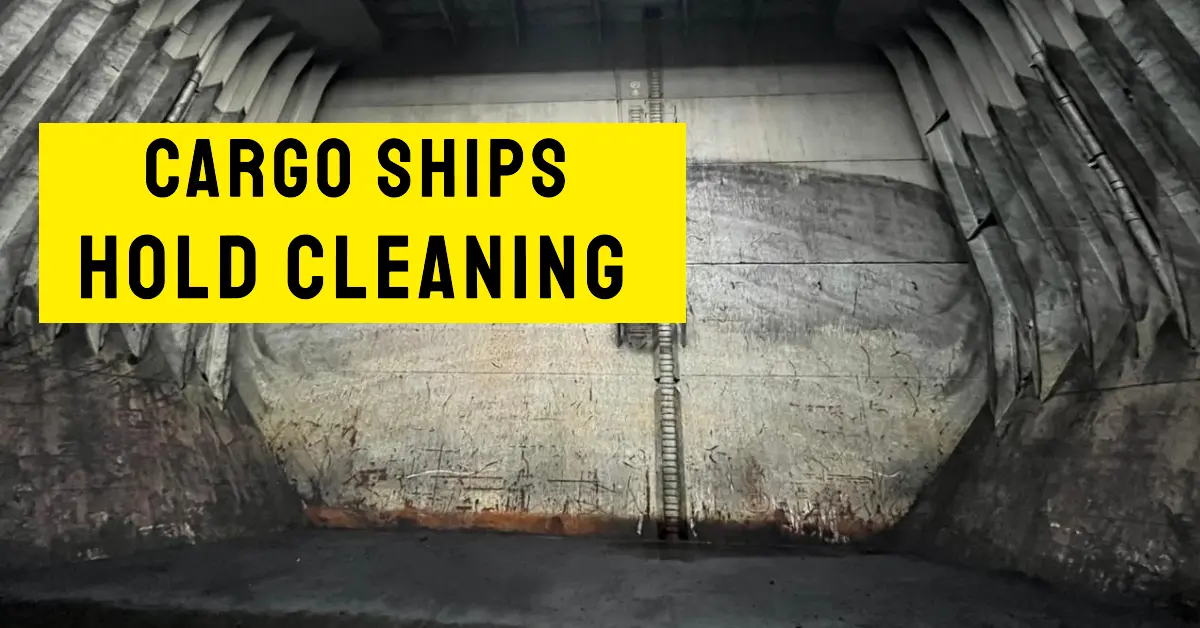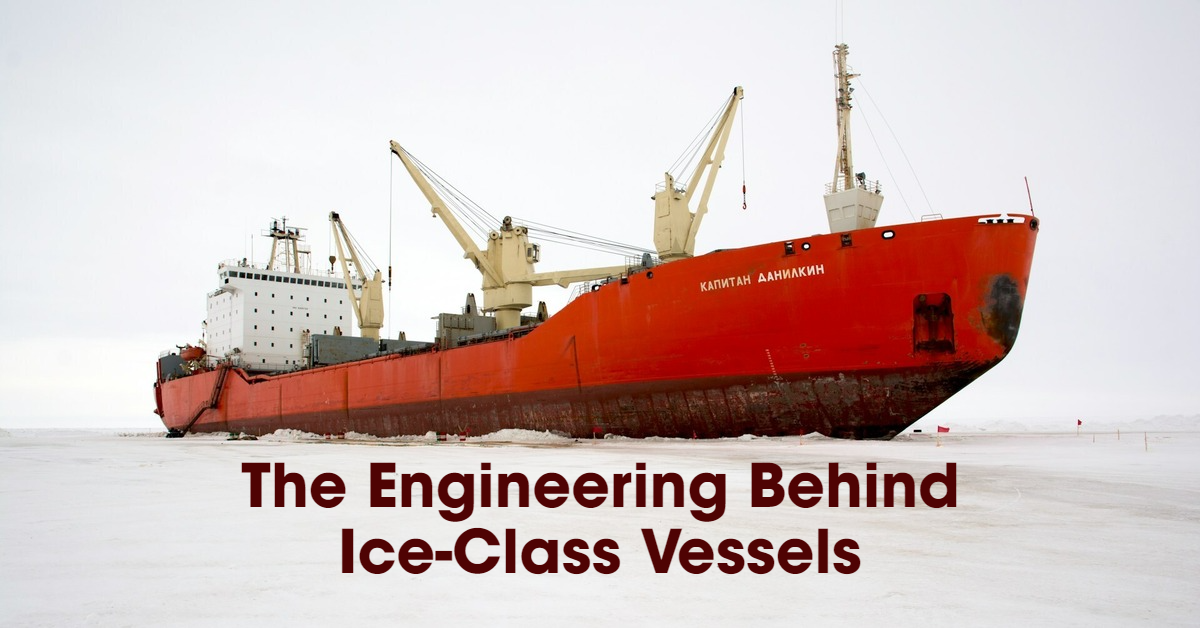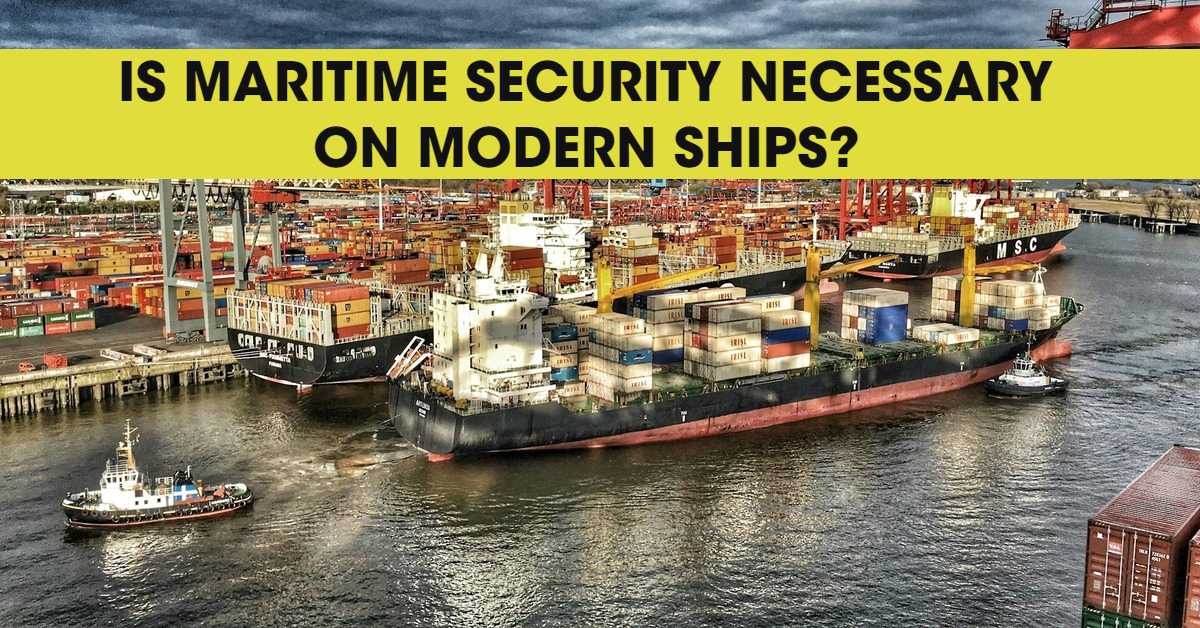Navigating the financial complexities of maritime operations can be daunting for ship owners and operators. With a variety of fees incurred during a cargo ship’s port call, understanding the breakdown and implications of these charges is crucial.
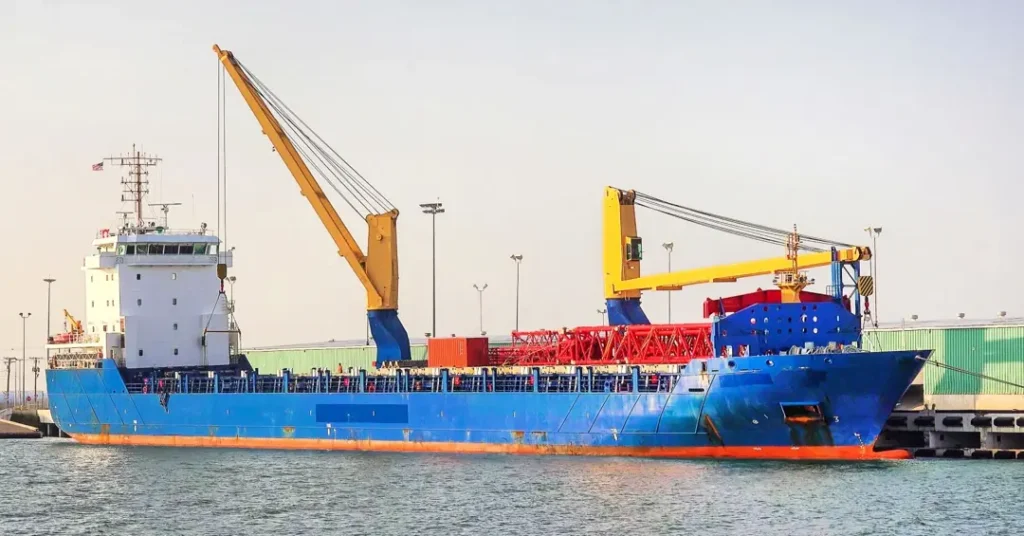
Here we take a closer look at port costs, offering insights into port charges, terminal handling charges, pilotage fees, and more, ensuring stakeholders can better manage and anticipate the expenses associated with shipping logistics.
Here is a quick overview of major port costs when a cargo ship is calling the harbor:
- Port Charges: Fees for using port facilities, including docking and moorage.
- Pilotage Fees: Charges for pilot services guiding ships in/out of ports.
- Tugboat Charges: Fees for tug assistance in maneuvering the ship within the port.
- Terminal Handling Charges: Costs for loading/unloading containers at the terminal.
- Agency Fees: Fees paid to local port agents for handling port documentation and formalities.
- Inspection Fees: Costs for required inspections, such as health or safety checks.
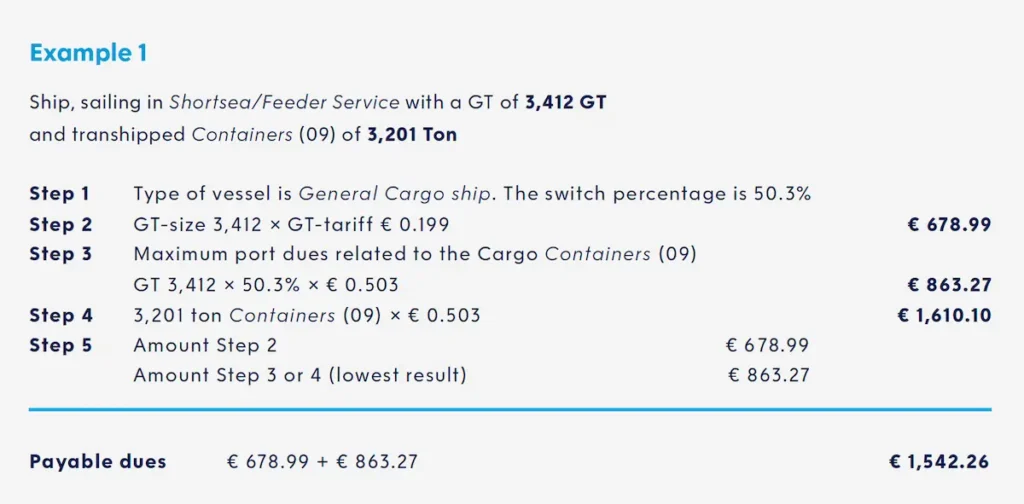
What are Port Charges?
Port charges are a collection of fees levied on cargo ships for using port facilities during their call at a port.
Port Charges for cargo ships typically encompass:
- Berth Fees: Cost for the ship’s docking space.
- Wharfage: Fees for using the wharf for loading or unloading cargo.
- Mooring Charges: Costs associated with securing the vessel at the berth.
- Dockage: Fees are based on the ship’s length or time at the dock.
These charges vary by port and are essential for port maintenance and operations.
The specific components and rates of port charges can vary widely depending on the port, the size of the vessel, and the type of cargo being handled. These fees are essential for maintaining and operating port infrastructure, ensuring safety, and providing necessary services to the vessels.
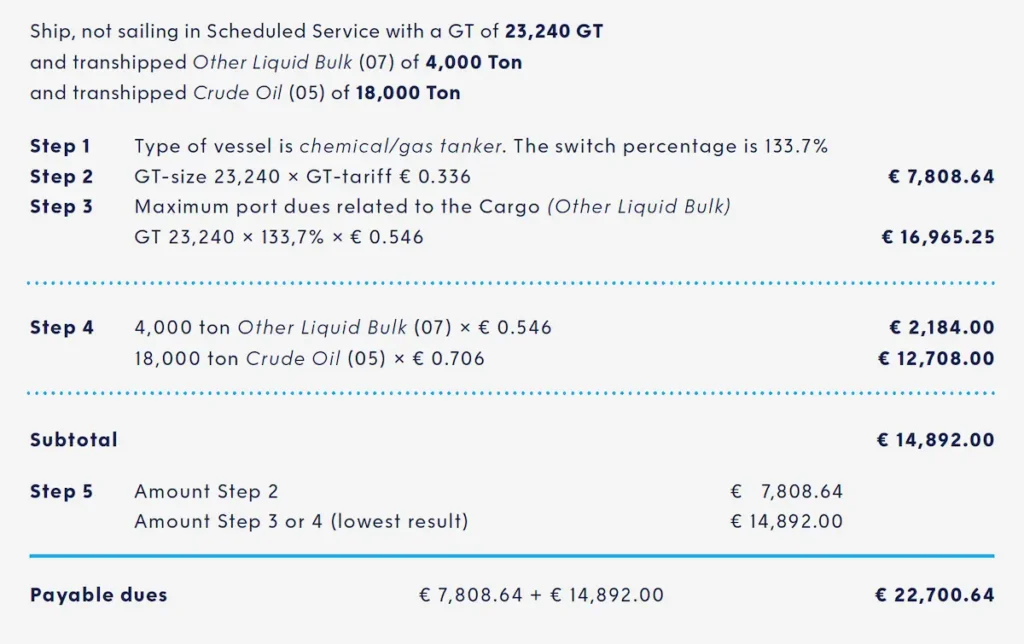
What are Pilotage Fees?
Pilotage fees are charges incurred for the services of a maritime pilot who guides ships into or out of ports or through hazardous waters. The expertise of a marine pilot, with their detailed knowledge of the local waterway, is crucial for the safety and efficiency of maritime navigation, especially in unfamiliar or congested areas.
The specific amount for pilotage fees can vary significantly depending on several factors, including the geographical location, the size and type of the vessel, and the complexity of the navigation required.
For example, certain ports or pilotage authorities may offer a fee calculator tool on their websites, such as the one provided by Maritime Safety Queensland or the Atlantic Pilotage Authority, allowing ship operators to estimate pilotage costs based on specific parameters like ship length or gross registered tonnage.
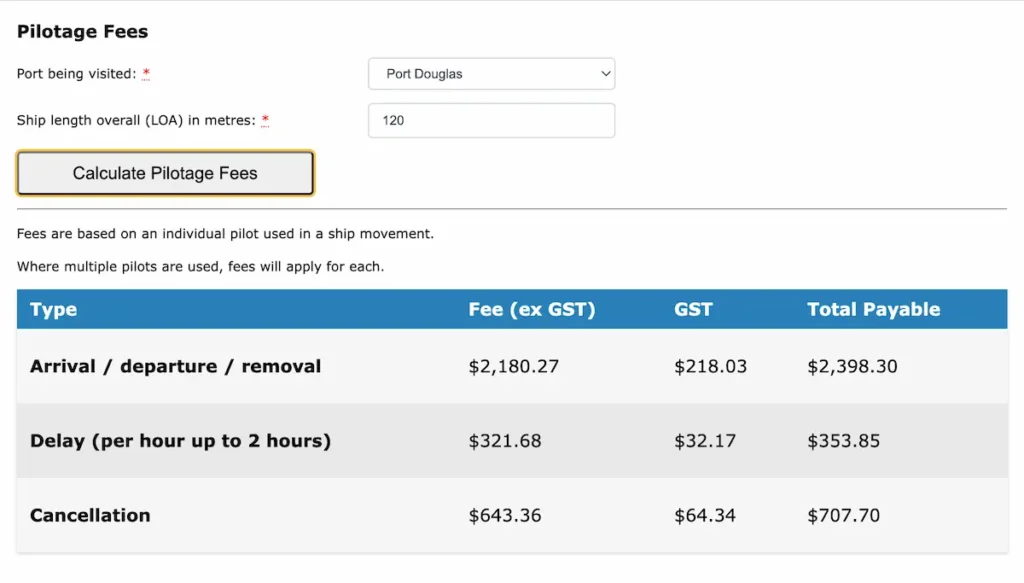
It’s important to note that these fees often do not include additional costs, such as those for pilot boats, which may be required to transport the pilot to and from the vessel. The fees calculated through such tools are meant to provide an estimate and may not represent the final invoiced amount, emphasizing the need for ship operators to consult directly with pilotage authorities for precise charges.
Pilotage fees are structured to ensure that pilotage services operate on a self-sustaining financial basis, with tariffs set to be fair and reasonable to eliminate cross-subsidization among ports.
For detailed information on pilotage fees, including the calculation and factors influencing the cost, it’s advisable to refer directly to the websites of local pilotage authorities or specific port authorities.
What are Tugboat Charges?
Tugboat charges are fees for the services provided by tugboats, which are essential in assisting medium container ships to ultra-large crude oil tankers during docking and undocking at ports. These charges vary based on several factors, including the bollard pull required and the number of tugboats used.
The primary objectives of tug assistance include inducing gyration movement, controlling speed, and countering a vessel’s inertial mass without using the vessel’s main propeller, to protect both the hull and berth integrity.
Are Tugboats Compulsory?
The use of tugboats is often compulsory for certain types of vessels or under specific conditions in many ports around the world. This requirement is primarily for safety reasons, to assist with the maneuvering of large vessels in confined port areas, or during adverse weather conditions.
The necessity for tugboats typically depends on the port’s regulations, the vessel’s size, and the complexity of the navigational challenges present in the harbor or waterway.
What are Terminal Handling Charges?
Terminal Handling Charges (THC) are a critical part of the overall port fees charged to cargo ships, encompassing the costs associated with the movement and storage of containers within the port terminal.
These fees are applied for services including but not limited to the loading and unloading of containers from ships, transportation of containers from the quay to the storage area within the terminal, and the use of terminal equipment and machinery.
THC varies by port and can be influenced by container size, type of cargo, and the specific handling requirements necessitated by the cargo’s nature.
What are Agency Fees?
Agency fees in the maritime shipping industry are crucial for facilitating the myriad of operations involved when a cargo ship calls at a port. These fees are paid to shipping agencies that represent the ship owner’s interests at the port, handling a wide range of services necessary for the vessel’s turnaround.
These services typically include but are not limited to, arranging for pilotage, berthing and unberthing services, coordinating cargo handling operations, managing documentation for customs and port authorities, and ensuring compliance with local regulations.
In maritime logistics, agency fees can significantly vary depending on the port’s location, the scope of services required, the vessel size, and the cargo type.
For example, a ship calling at a major port like Rotterdam, Singapore, or Shanghai might incur different agency fees based on the port’s specific charges, labor costs, and the complexity of the services required for that particular call.
What are Inspection Fees?
Inspection Fees in the context of port fees for cargo ships refer to the costs associated with mandatory inspections that a vessel and its cargo must undergo upon arrival at or departure from a port.
These inspections can include health, safety, security, and environmental checks to ensure compliance with international and local regulations.
The purpose is to safeguard public health, protect the environment, and ensure the ship and cargo meet all required standards and regulations. The fees vary depending on the port, the type of inspection, and the cargo being transported.
- Comprehensive Guide to Hold Cleaning for Cargo Ships: Ensuring Maritime Safety and Efficiency – October 19, 2024
- Responsibilities of a Fourth Engineer on Cargo Ships – September 10, 2024
- The Role of Cargo Ships in Global Trade – August 22, 2024

